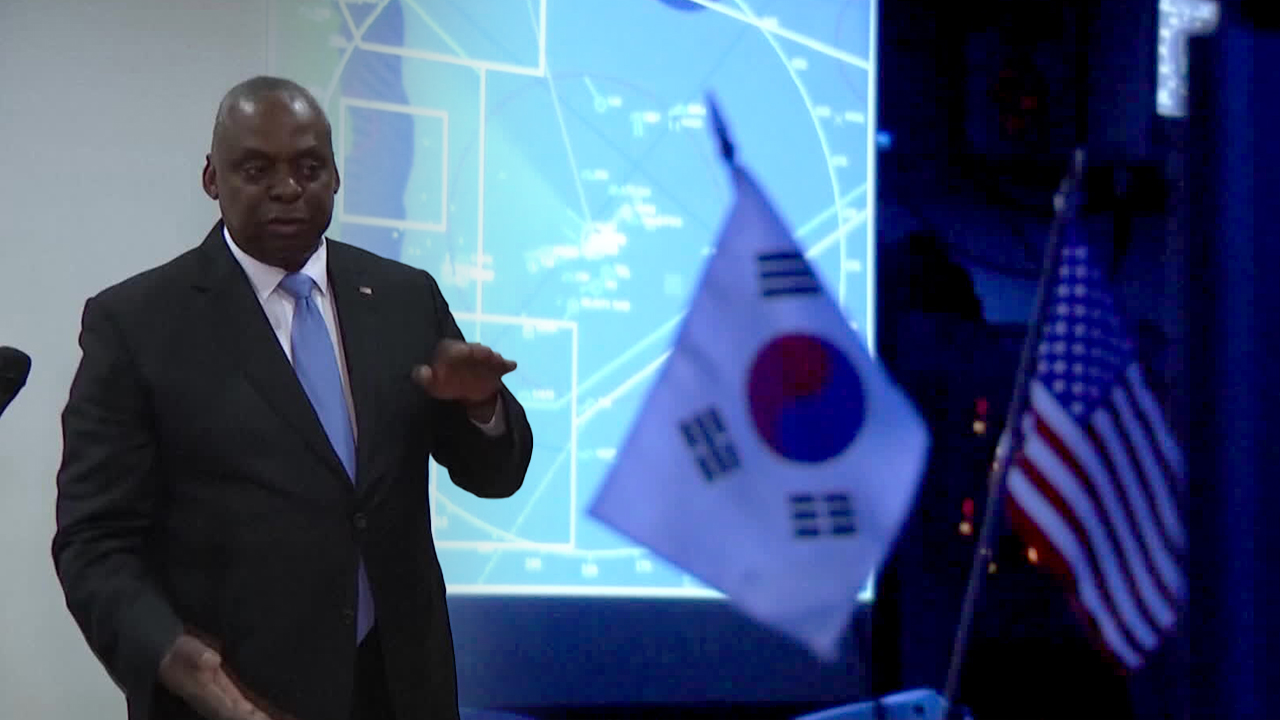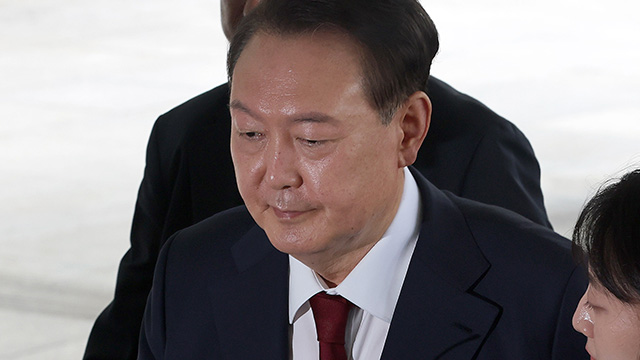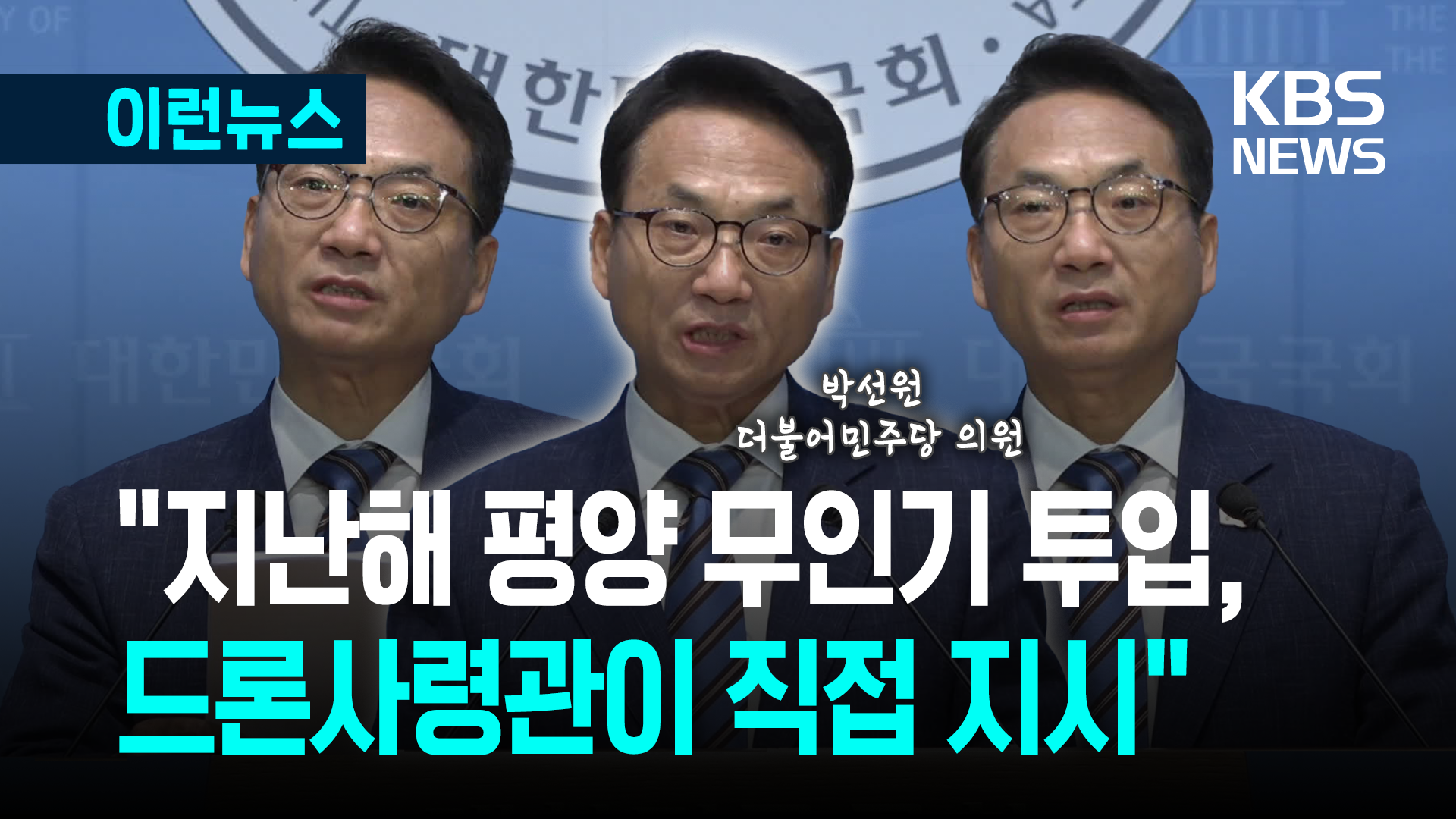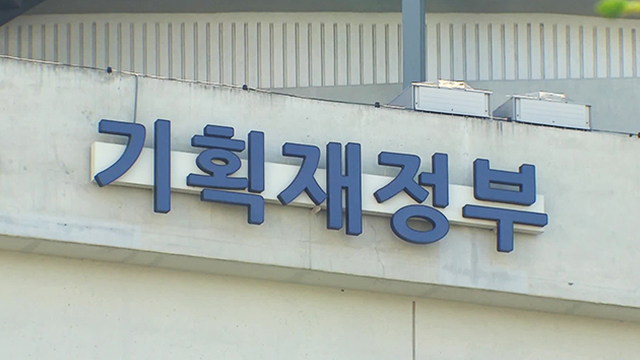U.S. Secretary of Defense suspends visit to South Korea
입력 2024.12.07 (01:33)
읽어주기 기능은 크롬기반의
브라우저에서만 사용하실 수 있습니다.
[Anchor]
The United States has been continuously making critical remarks towards President Yoon.
The U.S. Deputy Secretary of State publicly reprimanded him for a serious misjudgment, and concerns are rising that the suspension of the U.S. Secretary of Defense's visit to South Korea will weaken diplomatic efforts with the U.S.
This is reporter Kim Ji-sook from Washington.
[Report]
Typically, the U.S. Secretary of Defense visits both South Korea and Japan during trips to East Asia.
This time, however, he has decided to visit only Japan, excluding South Korea.
It is reported that this decision was made because it was deemed not an appropriate time for a visit.
In fact, the declaration of emergency martial law, the impeachment motion against the president, and the resignation of the Secretary of Defense have made substantial dialogue difficult.
The U.S. has indefinitely postponed the Korea-U.S. nuclear consultative group meeting and the first NCG tabletop exercise that were scheduled to be held in Washington.
During this meeting, guidelines regarding the provision of the U.S. nuclear umbrella were to be finalized, and for the first time, training was planned based on scenarios of North Korea's nuclear use.
[Pat Ryder/U.S. Department of Defense Spokesperson: "I don't have any updates to provide in terms of rescheduling again, just given the events in ROK, it was deemed a prudent measure."]
These actions by the U.S. government are raising concerns that the emergency martial law may cause a rift in the Korea-U.S. cooperation.
There have been unusually high-level public criticisms directed at the allied nation's leader.
[Kurt Campbell/U.S. Deputy Secretary of State: "President Yoon badly misjudged."]
[Vedant Patel/U.S. Department of State Deputy Spokesperson: "There are many questions that need to be answered regarding the decisions surrounding those developments."]
It is also analyzed that the U.S. seems to feel both bewildered by the declaration of emergency martial law and displeased at not being notified in advance.
However, the U.S. government has repeatedly emphasized the importance of the South Korea-U.S. alliance that transcends administrations.
It is widely expected that normal diplomatic relations between South Korea and the U.S. will be difficult until domestic turmoil subsides.
In particular, the second Trump administration is expected to be more passive regarding allied defense, putting the South Korean government's diplomatic capabilities with the U.S. to the test.
This is Kim Ji-sook from KBS News in Washington.
The United States has been continuously making critical remarks towards President Yoon.
The U.S. Deputy Secretary of State publicly reprimanded him for a serious misjudgment, and concerns are rising that the suspension of the U.S. Secretary of Defense's visit to South Korea will weaken diplomatic efforts with the U.S.
This is reporter Kim Ji-sook from Washington.
[Report]
Typically, the U.S. Secretary of Defense visits both South Korea and Japan during trips to East Asia.
This time, however, he has decided to visit only Japan, excluding South Korea.
It is reported that this decision was made because it was deemed not an appropriate time for a visit.
In fact, the declaration of emergency martial law, the impeachment motion against the president, and the resignation of the Secretary of Defense have made substantial dialogue difficult.
The U.S. has indefinitely postponed the Korea-U.S. nuclear consultative group meeting and the first NCG tabletop exercise that were scheduled to be held in Washington.
During this meeting, guidelines regarding the provision of the U.S. nuclear umbrella were to be finalized, and for the first time, training was planned based on scenarios of North Korea's nuclear use.
[Pat Ryder/U.S. Department of Defense Spokesperson: "I don't have any updates to provide in terms of rescheduling again, just given the events in ROK, it was deemed a prudent measure."]
These actions by the U.S. government are raising concerns that the emergency martial law may cause a rift in the Korea-U.S. cooperation.
There have been unusually high-level public criticisms directed at the allied nation's leader.
[Kurt Campbell/U.S. Deputy Secretary of State: "President Yoon badly misjudged."]
[Vedant Patel/U.S. Department of State Deputy Spokesperson: "There are many questions that need to be answered regarding the decisions surrounding those developments."]
It is also analyzed that the U.S. seems to feel both bewildered by the declaration of emergency martial law and displeased at not being notified in advance.
However, the U.S. government has repeatedly emphasized the importance of the South Korea-U.S. alliance that transcends administrations.
It is widely expected that normal diplomatic relations between South Korea and the U.S. will be difficult until domestic turmoil subsides.
In particular, the second Trump administration is expected to be more passive regarding allied defense, putting the South Korean government's diplomatic capabilities with the U.S. to the test.
This is Kim Ji-sook from KBS News in Washington.
■ 제보하기
▷ 카카오톡 : 'KBS제보' 검색, 채널 추가
▷ 전화 : 02-781-1234, 4444
▷ 이메일 : kbs1234@kbs.co.kr
▷ 유튜브, 네이버, 카카오에서도 KBS뉴스를 구독해주세요!
- U.S. Secretary of Defense suspends visit to South Korea
-
- 입력 2024-12-07 01:33:32

[Anchor]
The United States has been continuously making critical remarks towards President Yoon.
The U.S. Deputy Secretary of State publicly reprimanded him for a serious misjudgment, and concerns are rising that the suspension of the U.S. Secretary of Defense's visit to South Korea will weaken diplomatic efforts with the U.S.
This is reporter Kim Ji-sook from Washington.
[Report]
Typically, the U.S. Secretary of Defense visits both South Korea and Japan during trips to East Asia.
This time, however, he has decided to visit only Japan, excluding South Korea.
It is reported that this decision was made because it was deemed not an appropriate time for a visit.
In fact, the declaration of emergency martial law, the impeachment motion against the president, and the resignation of the Secretary of Defense have made substantial dialogue difficult.
The U.S. has indefinitely postponed the Korea-U.S. nuclear consultative group meeting and the first NCG tabletop exercise that were scheduled to be held in Washington.
During this meeting, guidelines regarding the provision of the U.S. nuclear umbrella were to be finalized, and for the first time, training was planned based on scenarios of North Korea's nuclear use.
[Pat Ryder/U.S. Department of Defense Spokesperson: "I don't have any updates to provide in terms of rescheduling again, just given the events in ROK, it was deemed a prudent measure."]
These actions by the U.S. government are raising concerns that the emergency martial law may cause a rift in the Korea-U.S. cooperation.
There have been unusually high-level public criticisms directed at the allied nation's leader.
[Kurt Campbell/U.S. Deputy Secretary of State: "President Yoon badly misjudged."]
[Vedant Patel/U.S. Department of State Deputy Spokesperson: "There are many questions that need to be answered regarding the decisions surrounding those developments."]
It is also analyzed that the U.S. seems to feel both bewildered by the declaration of emergency martial law and displeased at not being notified in advance.
However, the U.S. government has repeatedly emphasized the importance of the South Korea-U.S. alliance that transcends administrations.
It is widely expected that normal diplomatic relations between South Korea and the U.S. will be difficult until domestic turmoil subsides.
In particular, the second Trump administration is expected to be more passive regarding allied defense, putting the South Korean government's diplomatic capabilities with the U.S. to the test.
This is Kim Ji-sook from KBS News in Washington.
The United States has been continuously making critical remarks towards President Yoon.
The U.S. Deputy Secretary of State publicly reprimanded him for a serious misjudgment, and concerns are rising that the suspension of the U.S. Secretary of Defense's visit to South Korea will weaken diplomatic efforts with the U.S.
This is reporter Kim Ji-sook from Washington.
[Report]
Typically, the U.S. Secretary of Defense visits both South Korea and Japan during trips to East Asia.
This time, however, he has decided to visit only Japan, excluding South Korea.
It is reported that this decision was made because it was deemed not an appropriate time for a visit.
In fact, the declaration of emergency martial law, the impeachment motion against the president, and the resignation of the Secretary of Defense have made substantial dialogue difficult.
The U.S. has indefinitely postponed the Korea-U.S. nuclear consultative group meeting and the first NCG tabletop exercise that were scheduled to be held in Washington.
During this meeting, guidelines regarding the provision of the U.S. nuclear umbrella were to be finalized, and for the first time, training was planned based on scenarios of North Korea's nuclear use.
[Pat Ryder/U.S. Department of Defense Spokesperson: "I don't have any updates to provide in terms of rescheduling again, just given the events in ROK, it was deemed a prudent measure."]
These actions by the U.S. government are raising concerns that the emergency martial law may cause a rift in the Korea-U.S. cooperation.
There have been unusually high-level public criticisms directed at the allied nation's leader.
[Kurt Campbell/U.S. Deputy Secretary of State: "President Yoon badly misjudged."]
[Vedant Patel/U.S. Department of State Deputy Spokesperson: "There are many questions that need to be answered regarding the decisions surrounding those developments."]
It is also analyzed that the U.S. seems to feel both bewildered by the declaration of emergency martial law and displeased at not being notified in advance.
However, the U.S. government has repeatedly emphasized the importance of the South Korea-U.S. alliance that transcends administrations.
It is widely expected that normal diplomatic relations between South Korea and the U.S. will be difficult until domestic turmoil subsides.
In particular, the second Trump administration is expected to be more passive regarding allied defense, putting the South Korean government's diplomatic capabilities with the U.S. to the test.
This is Kim Ji-sook from KBS News in Washington.
-
-

김지숙 기자 jskim84@kbs.co.kr
김지숙 기자의 기사 모음
-
이 기사가 좋으셨다면
-
좋아요
0
-
응원해요
0
-
후속 원해요
0











![[속보] 정성호 법무장관 후보자 “검찰 해체 표현 적절치 않아…국민 눈높이 맞는 개혁 이뤄야”](/data/layer/904/2025/07/20250701_86evyp.png)



이 기사에 대한 의견을 남겨주세요.